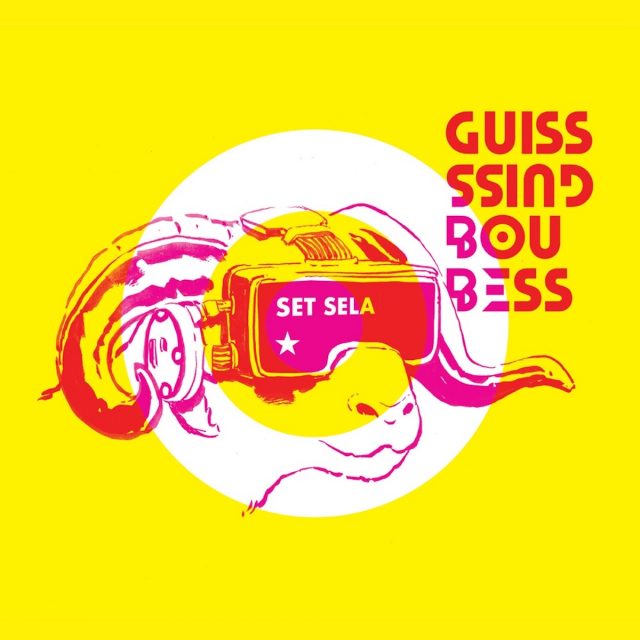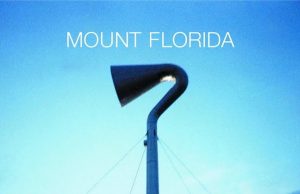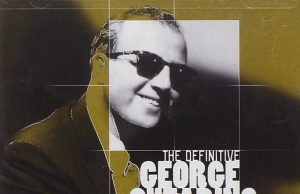THE EDITED PRESS RELEASE: “It is always a challenge to modernize a traditional recipe, and even harder to find a place for it in the contemporary world. But Guiss Guiss Bou Bess — Mara Seck, Aba Diop and Stephane Costantini — rise to the challenge to create a “new vision” and give new life to sabar, one of the most mystical musical styles of Senegal. Mara’s griot heritage, passed down through his late father, the beloved musician Alla Seck, combines with Aba Diop’s deep lineage in sabar percussion and Stephane Costantini’s extensive knowledge of bass culture to create a sound that is uniquely their own: Electro Sabar.
Together, the three have explored every style and rhythm to develop the perfect fusion of ritual percussion and bass music. They methodically respected every code of Senegalese traditions, while merging with the global rhythms of trap, dubstep, U.K. garage, drum & bass, bass house, afrobass and kuduro. The drums, beats, and sounds of Guiss Guiss Bou Bess were inspired and developed in the exuberant, bustling working class neighborhoods of Dakar. The Medina, where Mara Seck grew up, has a rich atmosphere and energy that is present throughout the album. These close ties to their roots ensure that the traditions of sabar are honored on every song of Set Sela.
To mix and master the album, Brazilian producer and maestro Chico Correa came in to add his pinch of spice to the sacred blend of sound. His expertise in assembling both the old and the new gave the finishing touches to the band’s first album. Set Sela, which means “to visit” in Wolof, is a spirited and powerful album. It is infused with sabar tradition and deep electronic pulsing throughout, and above all is an invitation to join in the celebration.
The Tracks
WAXTANE (bass house): Means The Discussion in Wolof. African political unity is far from a reality, but dialogue between communities, often separated by borders, could be a first step towards finding solutions to conflict, fighting against corruption and reducing inequalities.
BARKE BAYE (afrobass): This track is a posthumous reply to the original song “Adioup Nar”, composed by Mara’s father, the late Senegalese musician Alla Seck. This version calls on the spirit of the father to come and sing with his son.
LAMP (deep dubstep) : A dip into the Baye Fall, Senegal’s pacific and mystic brotherhood of Islam. The Baye Fall play a vital role in society, through their work ethic, emphasis on helping, especially during Ramadan, and their contributions of knowledge and deep spirituality.
NDUP (trance step): Ndup, the mystical and traditional rhythm used in rituals of trance to cure illness, is also a ceremonial custom still very common in the Lebu community. They are one of Senegal’s principal ethnic groups, and are known for their prowess in fishing and for having founded today’s capital city, Dakar.
MAJORETTES #1 & #2 (bass house): Feu Doudou Ndiaye Rose, the grand master of sabar, originally created this rhythm for the Senegal independence day celebrations’ annual procession, held on 4th May. The famous majorettes of the Dakar Lycée Kennedy used to accompany the master. This track pays homage to Senegal’s most renowned griot, who died in August 2015.
DIEuLEuL LII (afrobeats/house): A song A song dedicated to the power of music. Music transcends borders, it can travel all around the world and needs no passport. Music is a universal language and the cornerstone of the message from Guiss Guiss Bou Bess.
JËM ÇA KANAM (afrobass): A powerful call for Africa to use its wealth for its people and help them rise out of poverty. It is time for a new era to unfold, a new dynamic of sovereign empowerment for the continent.
SALAM (afrobass): Salam means peace in Islam. It is a traditional greeting heard throughout the streets of Senegal.
SET SELA (afrobass): Talks about visiting countries throughout the world, to share the sounds of Senegal.
BARA MBAYE (trap-ditional): Taken from the traditional wolof repertory, Bara Mbaye is a sabar rhythm generally used at baptisms. A call to dance, its deep and complex rhythms never fail to get women dancing to honor the newborn.”








































